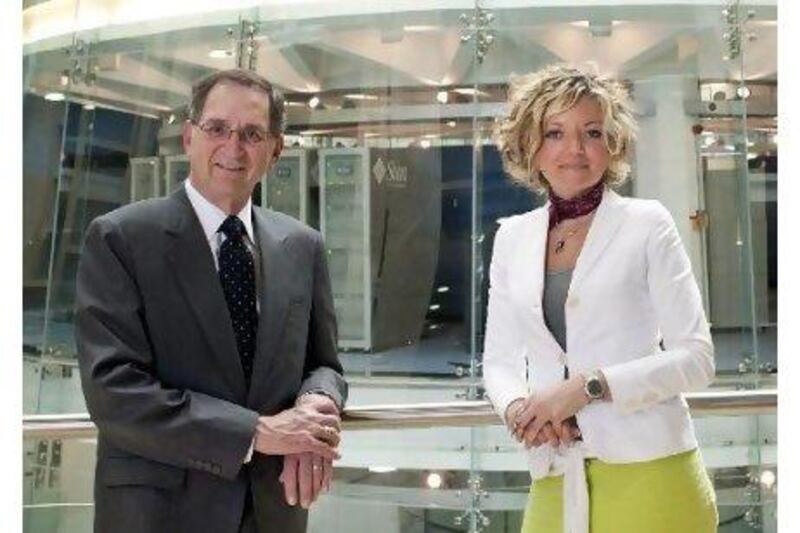AL AIN // Dr Vittoria Colizza is able to track the contagious transmission of everything from the H1N1 virus and other infectious diseases to the spread of ideas, including rumours - all on her computer.
Her unorthodox methods of simulating epidemic scenarios, using statistical physics and computational sciences, are among the ideas that keynote speakers are exploring at the three-day International Conference on Innovations in Information Technology, which began at UAE University yesterday.
Dr Colizza, a senior research scientist at the ISI Foundation in Italy, has been studying the effects of travel on human epidemics, as well as the impact of disease on the population and at which stages controlling or mitigating diseases are most effective.
She can also apply her statistical computer-crunching mechanics to social trends, such as the spread of obesity or smoking.
"Contagiousness is a process, and having a large database can help to determine who is prone to the transmission, whether it is biological or abstract," she said.
Another keynote speaker, David Cohn, the programme director at IBM's US-based TJ Watson Research Centre, outlined a sustainability project being conducted in Dubuque, Iowa, through real-time monitoring of water, electricity and waste-treatment services.
The project tracks usage from individual homes to calculate benefits, using software that spots patterns and anomalies. He suggests that a similar, cloud-based municipal services platform be put in place in Abu Dhabi.
"Human beings are able to connect information from a variety of sources, something that computers are not always able to do," he said. "Residents could essentially become agents working for you, giving you that data needed."
He also suggests using global positioning data available through mobile phones for a better snapshot of movement in the emirate.
"In today's world we can track cell phone movement to make smart decisions about controlling things like traffic congestion, and based on scientific information," he said. "Of course, there are security and privacy issues related to that which would need to be addressed. But that vast array of information could potentially be collected and fed to the city to make connections not otherwise possible."
Prof Josef Davis, of The University of Sydney's School of Information Technologies, outlined in his keynote address the benefits of "crowd servicing", or harnessing the wisdom of virtual crowds by getting them to interact and offer their opinions on products and services.
"The crowd can bring interesting, non-trivial, non-overlapping information and insights that can add to the quality of solutions," he said.






